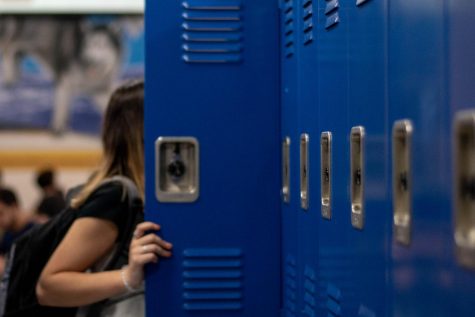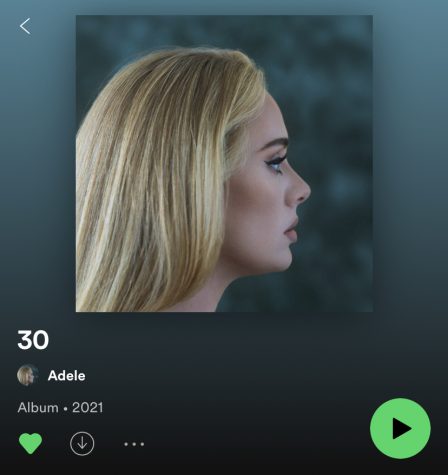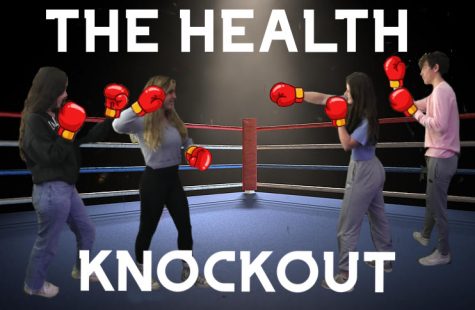School lunches spark immature conversations
♦ Staff Editorial ♦
The lunch line winds down in the small cafe, and students try to get a glimpse of today’s special. They grumble at what they find.
It’s small. It’s tasteless. But it’s all that’s offered.
Frustrated students across the nation have taken to social media to express their disatisfication. The Twitter tag, #ThanksMichelleObama, is November’s latest trend. Snarky tweets accompanied by photos of mysterious mush have drawn attention to the poor execution of noble intentions.
This year, Naperville North adopted Michelle Obama’s “Healthy Hunger-Free Kids Act.” The policy attempts to limit caloric intake, ensure proper portion size and guarantee a higher standard of nutrition. However, these healthy initiatives have come with a price.
Let’s face it: healthy fruits and vegetables are expensive. Although the act reimburses schools six cents for every meal sold that meets the new standards, it doesn’t seem to be enough. Students still “thank” Michelle Obama for the quality of their meals. While school lunches have never been particularly appetizing, there is no denying that students across the nation have acknowledged a rather marked shift in light of the new policy. And it’s only natural to place blame on the one in charge.
In many ways, it seems impractical to hope that a teenager will change his or her eating habits. Implementing healthy meal options is more likely to shape an elementary student’s diet. At that level, children are still developing their eating habits. But with especially unappetizing lunch options, high school students are unlikely to reverse their habits. They’re more likely to meet these unrealistic expectations with opposition.
But perhaps, as high school students, we must know our place. While the barrage of tweets in recent weeks has raised awareness for the issue, there is an understandable learning curve that comes with this new territory. The act requires cooperation from a variety of people: from students to school food authorities and to the government itself. It’s a process that will take time to perfect.
Students have valid reasons to be upset. In many ways, the food is smaller and less flavorful than in years past. Otis Spunkmeyer cookies are becoming a distant memory. Chocolate bars and soda are now rare and valuable commodities within the halls of NNHS. However, snarky tweets won’t change school menus. The “Healthy Hunger-Free Act” was passed with students’ best interests in mind; Michelle Obama could have hardly foreseen the delectable delights served in lunch lines today. She’s simply a scapegoat for our frustrations.
Students can continue tweeting, or they can decide to foster productive conversations. Petitions, letters and phone calls to local politicians could jumpstart reform. If students truly cannot stand school lunches, they have a responsibility to help forge an acceptable solution.













Phillips • Dec 7, 2014 at 6:46 am
Ok, not sure how to delete/edit comments so here’s another one…
I stand by my thoughts other than maybe the author knows about school lunches. The suggestions for starting change are wonderful however I have a problem with putting down these kids that are trying. A more positive and guiding approach is my preference but it saddens me that they even need to think about the quality of their food. Students should not carry this burden.
Thanks.
Phillips • Dec 7, 2014 at 6:40 am
The students are doing great. Good for them to expose this. How about adults see to it that children and young adults are fed and taught properly in schools? That you even suggest it’s their responsibility is ridiculous and shows you have had zero long term exposure to school lunches. They are disgusting: regularly expired milk, tortillas with burned and dried edges, “salads” that are mostly cheap whitish lettuce and maybe a tomatoe and a sprinkle of cheese, squishy apples, overcooked vegetables, undercooked pizza, and the list goes.
The students are just posting what they think is ridiculous and rightly so because it is, #thanksmichelleobama or not.
Ps: Believe it or not, most students are still pretty immature except that they know what gross is.
Jeremy • Nov 30, 2014 at 9:49 pm
I gave an in-depth presentation on this topic for my genius hour and what I can across was the fact that the program itself is flawed. The program sets calorie limits which it in itself is standardizing a very dynamic need. Health is individual and to make cookie cutter standards doesn’t work. If you take a bell curve and label the centre as the average the people to the right are being neglected and their needs aren’t being met. This standardization effectively labels everyone as average. In one grade a person can range from 100 to 250 lbs and a meal for a 150 lber will not cut it. What the program is doing is trying to solve childhood obesity and from a survey I did with Naperville students more than 90 percent said this program doesn’t solve this crisis. In fact in the same survey more than half said this new program actually effects negatively their academic prowess with not filling meals or puke inducing qualities. A school district in Arlington heights reverted to their old program and is actually making almost twice that they would get from the federal grant. Thus summing it all up that our school district is using a flawed program that doesn’t sell.
Thank you NSLP for butting into affairs that a black and white bill from the capital can’t fix.